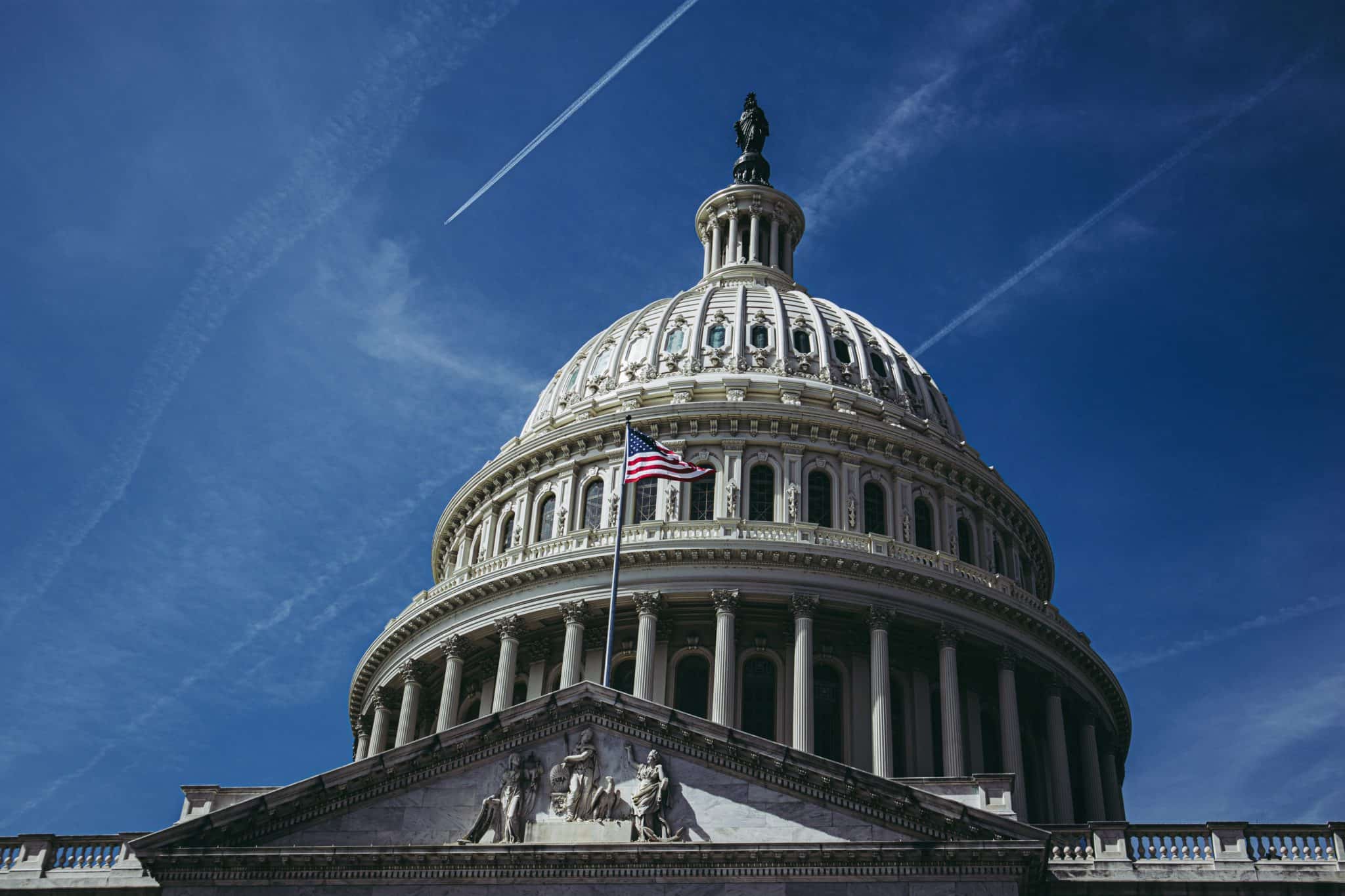
Kevin Vazquez is a staff attorney at the International Brotherhood of Teamsters. He graduated from Harvard Law School in 2023. The opinions he expresses on this blog are his own and should not be attributed to the IBT.
The big news this weekend comes out of Washington. As Hannah discussed for OnLabor on Thursday, the Inflation Reduction Act continued its rapid slog through the Senate this weekend. The Senate’s “vote-a-rama” began just after 11:30 p.m. last night, after Vice President Kamala Harris cast a tie-breaking vote (which divided the chamber along unanimous party lines) to advance the bill. The bill, if enacted—as appears increasingly successful, now that it has virtually cleared the senatorial roadblock that has proved so devastating to similar legislation in the past—would provide the largest-ever public investment in green energy in the nation’s history. In total, the bill will appropriate $740 billion in expenditures, approximately $430 billion of which will be spent on investments in green energy and to combat climate change. Not all in the Democratic caucus are pleased with the bill—Bernie Sanders, for instance, labeled it a “very, very modest piece [of legislation]” on Saturday, and, to that end, offered various failed amendments, such as increasing Medicare’s ability to negotiate pharmaceutical caps, providing coverage for dental and oral health care, hearing care, and vision care under Medicare, and extending the child tax credit and increasing the corporate tax rate, all of which were voted down after virtually unanimous opposition from Senate Democrats (in addition, of course to unanimous opposition from Senate Republicans). In any event, the modesty of the bill was necessary to secure the vote of the two most conservative Democrats in the chamber—Joe Manchin of West Virginia and Krysten Sinema of Arizona—both of whom have signed onto the bill after various revisions, and Sanders, for his part, will almost certainly end up supporting it as well.
Democrats could pass the bill through the Senate later today through the budget reconciliation process, which requires only a simple majority vote and enables them to evade a Republican filibuster. To be eligible for budget reconciliation, the bill’s provisions must comply with certain strict rules, determined by the Senate parliamentarian (a position that has not even existed for 100 years, and of which there have been only six in total). On Saturday, the parliamentarian, Elizabeth MacDonough, gave her stamp of approval to the bill’s climate provisions and most (but not all) of its healthcare provisions, and the bill, according to Senate Majority Leader Chuck Schumer, remains “largely intact” after her review. After advancing through the Senate, the bill will be sent to the House, which is expected to begin consideration of the legislation on Friday, at which point, if successful, it will be sent to President Biden’s desk to become law.
In other news, Starbucks’ scorched-earth campaign against Starbucks Workers United continued over the weekend. According to the union, the company fired a 13-year worker at a store in upstate New York, near Buffalo, for leading unionization efforts. In response, workers at the store walked off in protest on Friday, and the strike—documented on TikTok—continued into Friday. The union says that this is the ninth union leader in Buffalo to have been fired for union activity, and almost the 100th such worker fired by the company nationwide. It filed a ULP against Starbucks on the workers’ behalf, which has yet to be taken up by the NLRB.
Finally, for those looking for a more detailed weekend read, Jacobin published two interesting pieces this weekend. The first documents the “dangerously hot working conditions” that UPS drivers are facing this summer –and the preventable driver injuries (and deaths) that have resulted—and describes the ways in which drivers are fighting back, led by their Teamsters locals. This struggle, of course, serves as a prelude for the greater battle that will come later this year—and is, in fact, beginning now—as the UPS and Teamsters’ collective bargaining agreement expires and a new one is negotiated in 2023. These negotiations have assumed a much more combative bent since the election of Sean O’Brien as Teamsters’ president last year, who was supported by the Teamsters for a Democratic Union caucus and has been vocal about his support of labor militancy and, if necessary, striking. UPS Teamster locals and rank-and-file members have rallies and other demonstrations planned throughout the coming weeks and months and continuing into next summer, as bargaining begins.
Jacobin also published a review of economist Thomas Piketty’s (of Capital in the Twenty-First Century fame) most recent work, a collection of essays titled Time for Socialism, which followed shortly after his 2021 book A Brief History of Equality. The magazine “welcome[d]” Piketty to the socialist movement, describing how Piketty’s “embrace of socialism reflects his newfound conviction that ‘one cannot just be against capitalism or neoliberalism: one must also and above all be for something else.” The book chronicles Piketty’s gradual movement toward accepting socialism as “the most appropriate term to describe the idea of an alternative economic system to capitalism,” which the past three decades of “hypercapitalism”—and deteriorating standards of living worldwide, in addition to fraying civil society and political institutions—had pushed him to question and ultimately reject. Piketty describes his version of socialism as one that is “participative and decentralized, federal and democratic, ecological, feminist, and multiracial,” a conception that will deeply resonate with many of a democratic socialist bent. His vision is “to move gradually toward participatory socialism by changing the legal, fiscal, and social system,” slowly strengthening and expanding the democratic institutions that already formally exist in today’s liberal capitalist societies.
Jacobin, while supporting Piketty’s embrace of socialism, finds plenty to criticize in his blueprint. Its most scathing critique, however, is reserved for his “relative inattention” to organized labor, which, as the magazine rightly notes, is indispensable if his ambitious policy solutions are to be enacted. Without organized working-class power, Piketty’s envisioned social change will remain a mirage. The labor movement is the only way to harness and funnel working-class discontent into organized political and economic power, without which it will prove impossible to launch a sustained and coherent challenge to the aggregations of capital that currently dictate the nation’s (and globe’s) economic and social policy. Simply put, there is no way to enact the sort of transformative social change Piketty envisages without, in one way or another, confronting the “masters of mankind,” to borrow a line from Noam Chomsky—the privileged minority cabal that currently controls the vast majority of the planet’s resources and is loath to relinquish them to the majority. This cannot meaningfully be done without the strength of organized labor. At the end of the day, after all, building a better world is not a question of smart policy or sound arguments; it is a question of raw power.
In short, as succinctly phrased by Benjamin Sachs, working-class strength is necessary to countervail corporate power, and countervailing corporate power is necessary to combat social and economic inequality. If Piketty—and other intellectuals who desire a more democratic, equal, and sustainable world, even those who label themselves socialists—fail to realize this and neglect to place the labor movement at the center of their agendas, then all their well-reasoned tomes will simply collect dust on the fantasy shelf.






Daily News & Commentary
Start your day with our roundup of the latest labor developments. See all
February 27
The Ninth Circuit allows Trump to dismantle certain government unions based on national security concerns; and the DOL set to focus enforcement on firms with “outsized market power.”
February 26
Workplace AI regulations proposed in Michigan; en banc D.C. Circuit hears oral argument in CFPB case; white police officers sue Philadelphia over DEI policy.
February 25
OSHA workplace inspections significantly drop in 2025; the Court denies a petition for certiorari to review a Minnesota law banning mandatory anti-union meetings at work; and the Court declines two petitions to determine whether Air Force service members should receive backpay as a result of religious challenges to the now-revoked COVID-19 vaccine mandate.
February 24
In today’s news and commentary, the NLRB uses the Obama-era Browning-Ferris standard, a fired National Park ranger sues the Department of Interior and the National Park Service, the NLRB closes out Amazon’s labor dispute on Staten Island, and OIRA signals changes to the Biden-era independent contractor rule. The NLRB ruled that Browning-Ferris Industries jointly employed […]
February 23
In today’s news and commentary, the Trump administration proposes a rule limiting employment authorization for asylum seekers and Matt Bruenig introduces a new LLM tool analyzing employer rules under Stericycle. Law360 reports that the Trump administration proposed a rule on Friday that would change the employment authorization process for asylum seekers. Under the proposed rule, […]
February 22
A petition for certiorari in Bivens v. Zep, New York nurses end their historic six-week-strike, and Professor Block argues for just cause protections in New York City.